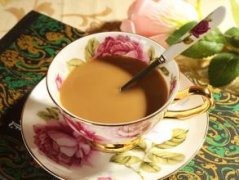Brief introduction of Coffee Flavor description Variety and Grinding degree treatment methods of Mercedes Manor in El Salvador

El Salvador boutique coffee is concentrated in the volcanic rock producing areas of Santa Ana in the west and Charantanan fruit in the northwest. In recent years, the top 10 cup tests are almost entirely from these two producing areas, with an altitude of about 9-1500 meters, mainly bourbon (68%). Followed by Pacas (29%), mixed-race Pakamara, Dulaai and Kaddura accounted for only 3%.
The coffee harvest lasts from November to March. The fresh fruit of coffee is picked by hand.
On the whole, Salvadoran coffee inherits the mild quality of Sino-American coffee, which is soft, slightly sour and has beautiful sweetness. At the same time, it also has its own characteristics: the aromatic taste is slightly sour and very soft; it is pure and has no miscellaneous flavor, and the taste balance is excellent; the smooth feeling like cream chocolate is impressive; the dense feeling of coffee in the mouth makes the coffee have a deep taste, and the long aftertaste Pacamara varieties are artificially cultivated varieties of Pacas and Maragogipe. It was first cultivated by researchers in El Salvador in 1958. Pacamara is an excellent variety under rare artificial breeding, which is better than blue, and perfectly inherits the advantages of the mother plant. Both the excellent taste of Pacas and the large size of Maragogipe are inherited by raw bean granules. The bean body is at least 70% and 80% of that of elephant beans, with more than 17 orders and more than 100% and more than 18 eyes. Average bean length 1.03 cm (general bean about 0.8-0.85 cm) average bean width 0.71 cm (general bean about 0.6-0.65), thickness 0.37 cm, bean shape plump and round. The biggest feature of this variety is that it is sour, lively and tricky, sometimes biscuit, sometimes fruity, thick and greasy. The best quality Salvadoran coffee from El Salvador and Guatemala ranks alongside Mexico and Guatemala as the producers of Asa and Merdo, and is fighting for the top one or two places in China and the United States with other countries. The highlands of origin are large coffee beans of all sizes, which are fragrant and mild in taste. Like Guatemala and Costa Rica, coffee in El Salvador is graded according to altitude. The higher the altitude, the better the coffee. It is divided into three grades according to elevation: SHB (strictlyhighgrown) = highlands, HEC (highgrowncentral) = mid-highlands, and CS (centralstandard) = lowlands. The best brand is Pipil, which is what the Aztec-Mayan (Aztec-Mayan) called coffee, which has been obtained by the American Organic Certification Society (OrganicCertifiedlnstitut El Salvador coffee origin:
Like Guatemala and Costa Rica, coffee in El Salvador is graded according to altitude, and the higher the altitude, the better the coffee. The best brand is Pipil, which is what the Aztec-Mayan (Aztec-Mayan) called coffee, which has been recognized by the American Organic Certification Society (OrganicCertifiedlnstituteofAmerica). Another rare coffee is Pacamara, a hybrid of Pacas and Maragogype. The best place to produce the coffee is in western El Salvador, adjacent to SantaAna, which is close to the border with Guatemala. Parkmara coffee is full-grained, but not very fragrant
Important Notice :
前街咖啡 FrontStreet Coffee has moved to new addredd:
FrontStreet Coffee Address: 315,Donghua East Road,GuangZhou
Tel:020 38364473
- Prev

A brief introduction to the flavor and taste of the manor in El Salvador, the smallest coffee-producing country in Central America.
The civil war in 1980 caused government forces and guerrillas to deal a blow to the coffee industry, as well as natural disasters, as well as the collapse in international raw bean prices between 1986 and 1987, all of which adversely affected the coffee industry. in fact, 80 years ago, the foreign exchange earned by coffee also assisted the country's clothing industry and contributed to the Ministry of Light Industry. And the marketing and export controlled by the government are even more disadvantageous to the whole industry.
- Next

A brief introduction to the mild taste of San Pedro Manor Coffee Manor in Puerto Rico
Puerto Rico Puerto Rico San Pedro Manor Coffee beans Puerto Rico's new farm coffee is a mild, supple, well-balanced island bean with a charming single malt aroma, extremely sweet when sipped in a cup, and medium-roasted creamy and greasy texture that is often suitable for Puerto Rican island beans. "Puerto Rican Coffee beans | San Pedro Manor Cafe, Puerto Rico
Related
- Does Rose Summer choose Blue, Green or Red? Detailed explanation of Rose Summer Coffee plots and Classification in Panamanian Jade Manor
- What is the difference between the origin, producing area, processing plant, cooperative and manor of coffee beans?
- How fine does the espresso powder fit? how to grind the espresso?
- Sca coffee roasting degree color card coffee roasting degree 8 roasting color values what do you mean?
- The practice of lattes: how to make lattes at home
- Introduction to Indonesian Fine Coffee beans-- Java Coffee producing area of Indonesian Arabica Coffee
- How much will the flavor of light and medium roasted rose summer be expressed? What baking level is rose summer suitable for?
- Introduction to the characteristics of washing, sun-drying or wet-planing coffee commonly used in Mantenin, Indonesia
- Price characteristics of Arabica Coffee Bean Starbucks introduction to Manning Coffee Bean Taste producing area Variety Manor
- What is the authentic Yega flavor? What are the flavor characteristics of the really excellent Yejasuffi coffee beans?

